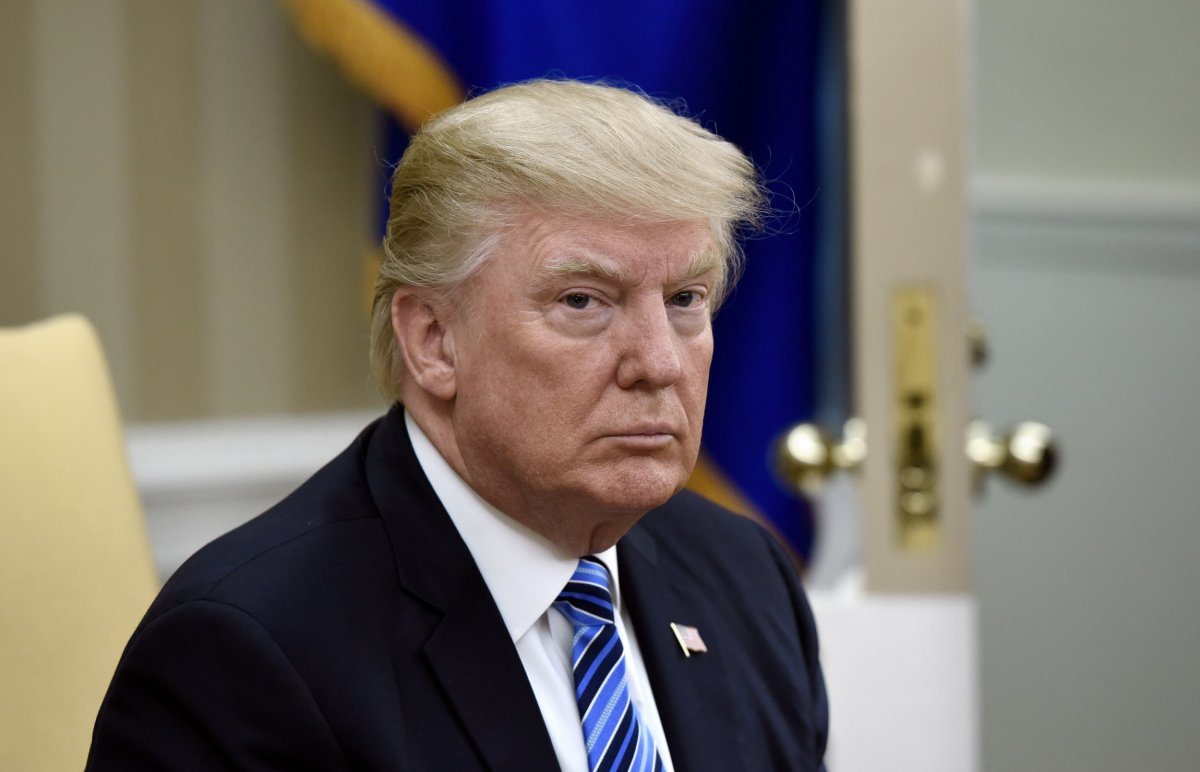Ratified on July 9, 1868, after the American Civil War, the 14th Amendment to the U.S. Constitution was born out of a need to protect the rights to American citizenship of freed slaves.
As one of the three amendments passed during the Reconstruction era to abolish slavery and establish civil rights for black Americans, the 14th Amendment stated that "all persons born or naturalized in the United States, and subject to the jurisdiction thereof, are citizens of the United States."
In the decades since its ratification, the 14th Amendment has come to play a defining role in many landmark Supreme Court decisions—and it may do so again as the Trump administration looks set to challenge the right to citizenship of children born on U.S. soil.

'It's Ridiculous. And It Has to End'
On Tuesday, President Donald Trump revealed plans to sign an executive order that would remove the right to citizenship for children of non-U.S. citizens and undocumented immigrants born in the U.S.
The revelation came in an excerpt of an interview the president did with Axios, which is set to air on HBO on Sunday.
"We're the only country in the world where a person comes in and has a baby, and the baby is essentially a citizen of the United States for 85 years, with all of those benefits," Trump said in the interview.
But the U.S. is not the only country to grant birthright citizenship, with a number of countries, including America's northern neighbor, Canada, also providing similar rights.
Still, the president asserted: "It's ridiculous. And it has to end."
Can Trump End Birthright Citizenship?
The president said that he had always been told that "you needed a constitutional amendment" to end birthright citizenship. "Guess what?" he said. "You don't."
"You can definitely do it with an act of Congress," Trump said. "But now they're saying I can just do it with an executive order."
"It'll happen," he said. "With an executive order."
While the president did not provide a specific timeline for when he planned to sign such an executive order, he did say that he had already brought up the idea with White House counsel and said efforts were already "in the process."
If Trump does move to end birthright citizenship, it would be his administration's most dramatic effort yet in its campaign to crack down on immigration.
Read more: Trump Says He Plans to Sign Executive Order to Terminate Birthright Citizenship
Still, experts have expressed doubt over whether the president actually has the power to end the right to citizenship for those born on U.S. soil.
Judge James C. Ho, who was appointed by the president to the Fifth Circuit Court of Appeals in New Orleans, had previously said that it would be "unconstitutional" to change how the 14th Amendment is applied in a 2011 article in The Wall Street Journal.
But John Eastman, a constitutional scholar and director of Chapman University's Center for Constitutional Jurisprudence, told Axios on HBO that he believes the Constitution has been misapplied over the past 40 years or so.
He said that one specific line in the amendment, "subject to the jurisdiction thereof," was meant to refer to people with full, political allegiance to the U.S., meaning citizens and green card holders.
Legal challenges likely to follow
In a statement emailed to Newsweek, Omar Jadwat, director of the American Civil Liberties Union's Immigrants' Rights Project said: "The president cannot erase the Constitution with an executive order."
"The 14th Amendment's citizenship guarantee is clear. This is a transparent and blatantly unconstitutional attempt to sow division and fan the flames of anti-immigrant hatred in the days ahead of the midterms."
If Trump does move forward with signing an executive order to terminate birthright citizenship, he can expect legal challenges from rights group and immigration advocacy groups to follow.
Legal challenges to the order would likely be pinned to the 14th Amendment, forcing the courts to rule on whether the amendment bars the Trump administration from taking citizenship rights away from those born in the U.S.
Other parts of the amendment's earliest sections also come into play in any legal challenge to Trump's proposed order. The second clause of the amendment states that: "No State shall make or enforce any law which shall abridge the privileges or immunities of citizens of the United States" and an "equal protection clause" stating that no "person within its jurisdiction" be denied "the equal protection of the laws."
Uncommon Knowledge
Newsweek is committed to challenging conventional wisdom and finding connections in the search for common ground.
Newsweek is committed to challenging conventional wisdom and finding connections in the search for common ground.
About the writer
Chantal Da Silva is Chief Correspondent at Newsweek, with a focus on immigration and human rights. She is a Canadian-British journalist whose work ... Read more
To read how Newsweek uses AI as a newsroom tool, Click here.








